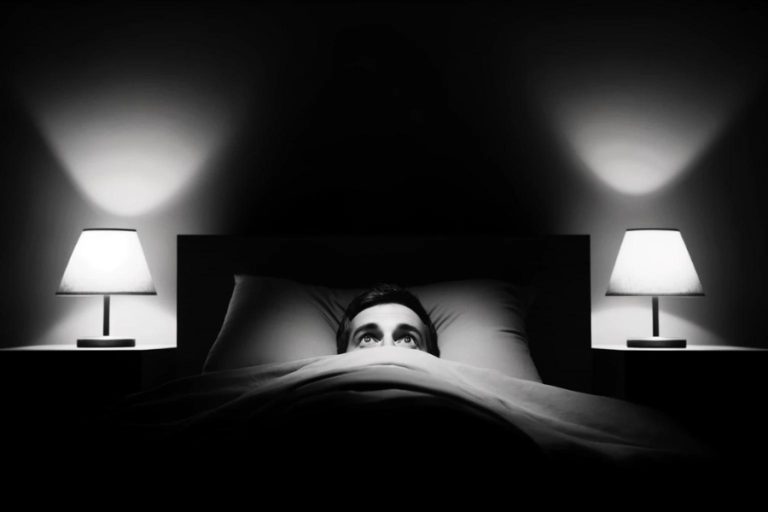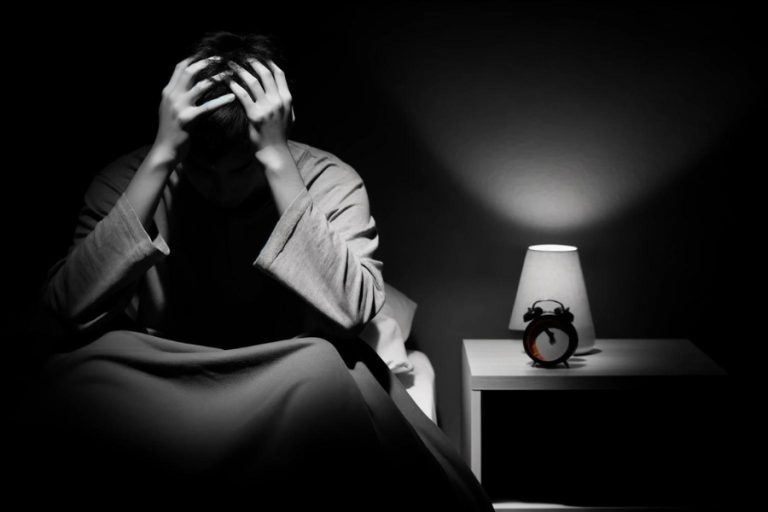Introduction: Anxiety and Sleep Interconnection
Anxiety and sleep share a complex and intertwined relationship, where each can significantly impact the other. Anxiety often leads to sleep disturbances, such as difficulty falling asleep, staying asleep, or experiencing restless nights. Conversely, poor sleep can heighten anxiety levels, creating a vicious cycle that is difficult to break.
Understanding this connection is crucial for improving overall mental health and well-being. Many individuals may not realize that their anxiety is contributing to their sleep issues or that inadequate sleep is exacerbating their anxiety. Recognizing these links allows for more effective management strategies that address both problems simultaneously.
In this article, we will delve into how anxiety affects sleep, explore common sleep disorders associated with anxiety, and discuss practical strategies to improve sleep quality. By addressing the root causes and implementing targeted solutions, individuals can break free from the cycle of anxiety and poor sleep, leading to better health and a more balanced life.
Table of Content
- Introduction: Anxiety and Sleep Interconnection
- How Anxiety Affects Sleep Quality
- Common Sleep Disorders Linked to Anxiety
- Impact of Poor Sleep on Anxiety
- Strategies for Improving Sleep with Anxiety
- Mindfulness and Relaxation for Better Sleep
- Professional Help for Sleep Issues
- Conclusion: Achieving Restful Nights
- Frequently Asked Questions
How Anxiety Affects Sleep Quality
Insomnia and Restless Sleep
Anxiety often manifests as insomnia, making it difficult for individuals to fall asleep or stay asleep. Persistent worry and racing thoughts can keep the mind active long into the night, preventing the relaxation necessary for restful sleep. This can result in prolonged periods of wakefulness and a lack of restorative rest.
In my opinion, restless sleep caused by anxiety can exacerbate the problem, leading to a cycle of poor sleep and increased anxiety. People with anxiety may wake up frequently during the night, unable to fall back asleep, leaving them feeling exhausted and irritable the next day. Addressing insomnia involves both managing anxiety and adopting good sleep hygiene practices.
Nightmares and Anxiety
Anxiety can also contribute to frequent nightmares, disrupting sleep quality. These intense, distressing dreams can be a manifestation of the underlying stress and fear associated with anxiety disorders. Nightmares often lead to waking up in a state of panic, making it difficult to return to sleep and causing further sleep fragmentation.
Nightmares linked to anxiety can result in a heightened sense of dread about going to sleep, creating a negative feedback loop that exacerbates both anxiety and sleep disturbances. Techniques such as relaxation exercises, therapy, and establishing a calming bedtime routine can help reduce the occurrence of anxiety-induced nightmares.

Common Sleep Disorders Linked to Anxiety
Sleep Apnea and Anxiety
Sleep apnea, a condition characterized by interrupted breathing during sleep, is commonly linked to anxiety. The repeated awakenings caused by apnea episodes can lead to fragmented sleep, increasing daytime fatigue and stress. This constant interruption can also heighten anxiety levels, as the body and mind are deprived of the rest they need.
Managing sleep apnea typically involves the use of continuous positive airway pressure (CPAP) devices and lifestyle changes like weight management and avoiding alcohol. Addressing sleep apnea can significantly reduce anxiety symptoms by improving sleep quality and overall health.
Restless Leg Syndrome and Anxiety
Restless Leg Syndrome (RLS), a condition causing uncomfortable sensations in the legs and an irresistible urge to move them, can severely disrupt sleep. The constant need to move to relieve these sensations can prevent restful sleep, leading to increased anxiety and daytime fatigue.
In my opinion, the discomfort and sleep disruption caused by RLS can contribute significantly to anxiety, creating a challenging cycle to break. Treatment options for RLS include medications, lifestyle changes, and strategies to improve sleep hygiene. Managing RLS can help reduce anxiety levels and improve overall sleep quality.
Related Article: Unlocking Anxiety’s Hidden Effects on Daily Life
Impact of Poor Sleep on Anxiety
Sleep Deprivation’s Effect on Anxiety Levels
Sleep deprivation has a profound impact on anxiety levels. When the body does not get enough restorative sleep, it cannot effectively regulate stress hormones, leading to heightened anxiety. Chronic sleep deprivation can increase irritability, reduce the ability to cope with stress, and exacerbate anxiety disorders.
Addressing sleep deprivation involves prioritizing sleep hygiene and addressing underlying causes of poor sleep, such as anxiety. Establishing a consistent sleep schedule, creating a relaxing bedtime routine, and seeking professional help for sleep disorders can help reduce anxiety levels.
Cognitive Impairments Due to Lack of Sleep
Lack of sleep can lead to significant cognitive impairments, affecting concentration, memory, and decision-making abilities. These cognitive deficits can increase anxiety, as individuals may feel less capable of handling daily tasks and stressors. Poor sleep also reduces emotional regulation, making it harder to manage anxiety and stress.
In my opinion, improving sleep quality is crucial for maintaining cognitive function and reducing anxiety. Strategies such as cognitive-behavioral therapy for insomnia (CBT-I), mindfulness practices, and maintaining a healthy lifestyle can help enhance sleep quality and alleviate anxiety-related cognitive impairments.

Strategies for Improving Sleep with Anxiety
Establishing a Bedtime Routine
Creating a consistent bedtime routine can significantly improve sleep quality, especially for those with anxiety. A predictable routine signals the body that it’s time to wind down and prepare for sleep. Activities such as reading a book, taking a warm bath, or listening to calming music can help transition the mind and body into a restful state.
In my opinion, consistency is key. Going to bed and waking up at the same time every day, even on weekends, helps regulate the body’s internal clock. This routine can reduce anxiety about sleep and make it easier to fall asleep and stay asleep, promoting better overall sleep quality.
Creating a Sleep-Friendly Environment
A sleep-friendly environment is crucial for quality rest. This includes a comfortable mattress and pillows, cool room temperature, and minimal light and noise. Reducing exposure to screens and blue light before bed is essential, as they can interfere with melatonin production, making it harder to fall asleep.
Using blackout curtains, white noise machines, or earplugs can help create an optimal sleep setting. Investing in a relaxing atmosphere, free from distractions, enhances the ability to fall asleep and stay asleep, particularly for those struggling with anxiety.
Mindfulness and Relaxation for Better Sleep
Meditation Techniques for Sleep
Meditation can be a powerful tool for improving sleep, especially for individuals with anxiety. Techniques such as guided meditation, body scan meditation, and deep breathing exercises can calm the mind and prepare it for sleep. These practices help reduce racing thoughts and promote relaxation, making it easier to drift off to sleep.
In my opinion, incorporating meditation into the nightly routine can have lasting benefits. Regular practice not only improves sleep quality but also helps manage anxiety levels, creating a positive feedback loop that enhances overall well-being. Apps like Calm and Headspace offer guided meditations specifically designed to aid sleep.
Relaxation Exercises Before Bed
Engaging in relaxation exercises before bed can significantly improve sleep quality. Activities such as progressive muscle relaxation, gentle yoga, and deep breathing can help release tension and signal the body that it’s time to sleep. These exercises reduce physical and mental stress, making it easier to fall asleep.
Creating a pre-sleep relaxation routine can combat anxiety-driven sleep disturbances. Consistently practicing these exercises can train the body and mind to associate them with bedtime, leading to more restful and uninterrupted sleep.

Professional Help for Sleep Issues
When to See a Sleep Specialist
If sleep issues persist despite trying various strategies, it may be time to see a sleep specialist. Persistent sleep problems, such as insomnia or frequent waking, can indicate underlying conditions that require professional intervention. A specialist can conduct sleep studies to diagnose issues like sleep apnea or restless leg syndrome.
In my opinion, seeking professional help is a proactive step toward better sleep health. A specialist can provide tailored treatment plans and recommendations to address specific sleep disorders, ultimately improving both sleep quality and overall mental health.
Therapeutic Approaches for Sleep Disorders
Therapeutic approaches, such as Cognitive Behavioral Therapy for Insomnia (CBT-I), are highly effective in treating sleep disorders. CBT-I focuses on changing negative thoughts and behaviors related to sleep, promoting healthier sleep patterns. This therapy can be particularly beneficial for individuals whose anxiety contributes to sleep disturbances.
Other therapies might include medication, light therapy, or sleep hygiene education, depending on the diagnosed condition. Combining these therapeutic approaches with lifestyle changes can lead to significant improvements in sleep quality and a reduction in anxiety symptoms.
Conclusion: Achieving Restful Nights
Understanding the deep connection between anxiety and sleep is crucial for breaking the cycle of restless nights and heightened stress. By recognizing how anxiety disrupts sleep and vice versa, individuals can take proactive steps to address both issues simultaneously. This comprehensive approach ensures better overall mental health and well-being.
Implementing strategies like establishing a consistent bedtime routine, creating a sleep-friendly environment, and incorporating mindfulness practices can significantly improve sleep quality. These practices not only help in falling asleep more easily but also enhance the depth and restorative quality of sleep. Consistency and dedication to these habits are key to long-term success.
In my opinion, seeking professional help when necessary is an essential part of the journey toward better sleep and reduced anxiety. Sleep specialists and therapeutic approaches like CBT-I offer tailored solutions for persistent sleep issues. By addressing sleep disorders with a multifaceted strategy, individuals can achieve restful nights and a more balanced, anxiety-free life.
FAQs Section
How does anxiety affect sleep quality?
Anxiety affects sleep quality by causing insomnia, frequent awakenings, and restless sleep. Persistent worry and racing thoughts prevent the mind from relaxing, making it difficult to fall asleep. Additionally, anxiety can lead to nightmares, further disrupting restful sleep and exacerbating anxiety symptoms.
What are effective bedtime routines for better sleep?
Effective bedtime routines for better sleep include setting a consistent sleep schedule, engaging in relaxing activities like reading or taking a warm bath, and avoiding screens and caffeine before bed. Creating a calming environment with low lighting and comfortable bedding also promotes better sleep.
How can mindfulness improve sleep quality?
Mindfulness improves sleep quality by promoting relaxation and reducing stress. Techniques such as meditation, deep breathing, and progressive muscle relaxation help calm the mind and prepare the body for sleep. Regular mindfulness practice can significantly reduce anxiety, leading to more restful and uninterrupted sleep.
When should I see a sleep specialist?
You should see a sleep specialist if you experience persistent sleep problems, such as difficulty falling asleep, frequent awakenings, or daytime fatigue despite trying various sleep improvement strategies. A specialist can diagnose underlying sleep disorders and recommend effective treatments to improve sleep quality.
What are common sleep disorders linked to anxiety?
Common sleep disorders linked to anxiety include insomnia, sleep apnea, and restless leg syndrome. These conditions disrupt sleep patterns and exacerbate anxiety symptoms. Addressing these sleep disorders through lifestyle changes, therapy, or medical interventions can help reduce anxiety and improve overall sleep quality.
